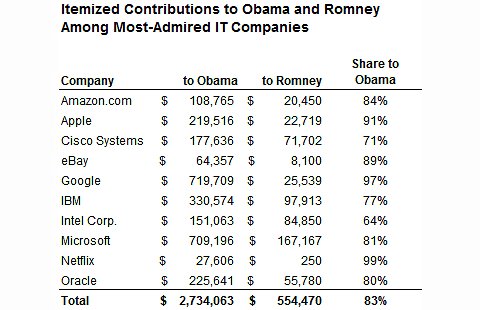One of the Republican Party’s top campaign masterminds, Karl Rove, is reportedly looking to build the epicenter of conservative digital campaign tools right in the heart of Silicon Valley. “We are working within the party to create a big toolbox that can compete in the midterms and be used by all,” private-equity investor Richard Boyce told the Wall Street Journal about the still-forming entity. However, when Rove and company start looking for talent, they might find the most well-regarded hackers want nothing to do with the Republican party–no matter how much money is offered.
“Technologists are often single, socially moderate-to-liberal, much more secular than the population as a whole, and those demographics are a problem for the Republican Party right now,” GOP consultant Kevin Spillane told the San Jose Mercury. “It’s hard to side with a party that’s still trying to reach out to their base of creationists,” added Johnvey Hwang, a 34-year-old San Francisco software engineer that volunteered for Obama in 2012.
Indeed, if one looks at President Obama’s top talent over the years, they weren’t mercenaries. Chris Hughes, the Facebook co-founding billionaire, left the social network giant to help Obama pioneer a digital eco-system that beat then presumptive nominee, Hillary Clinton. Harper Reed, the former threadless Chief Technology Officer, oversaw the revamping of Obama’s targeting and fundraising tools in 2012. Neither Hughes nor Reed needed money.
Especially in presidential campaigns, it’s the disruptive innovations that make a difference. Over the last three election cycles, disruptive campaign innovation almost universally comes from liberals. “The left not only chooses more participatory technology, but also uses the available technological tools to maintain more fluid relations between secondary or user-contributed materials and those of primary contributors,” explained a study of online blogs from the Harvard Berkman Center for Internet and Society.
To be sure, we’ve profiled how the GOP had a smart digital strategy during the last election. With less money and time than Team Obama, they managed to boost Romney’s engagement with Facebook users roughly up to the level of Obama’s. They also, reportedly, had incredibly high Facebook ad target responsiveness, with 10% click-through rates–10 times higher than Facebook’s normal rate.
But, Romney’s digital team didn’t attract the same star power. Much of it came from direct consulting with Google and Facebook’s existing teams. That kind of arm’s-length advice doesn’t produce the kind of quality that can top-flight hackers will create when they’re passionately obsessed with a project 24-hours/day.
Techies do not have a fondness for working for Republicans. As election statistician Nate Silver found, a whopping 83% of donations from top IT companies went to Obama (graph below). “It does not require an algorithm to deduce that the sort of employees who may be willing to donate substantial money to a political campaign may also be those who would consider working for it,” Silver surmised.

Rove can spend all the money he wants, but unless the Republicans can make friends in the Valley, top talent will continue to work, largely, for the opposition. Access to the best hackers, is seems, is priceless.
